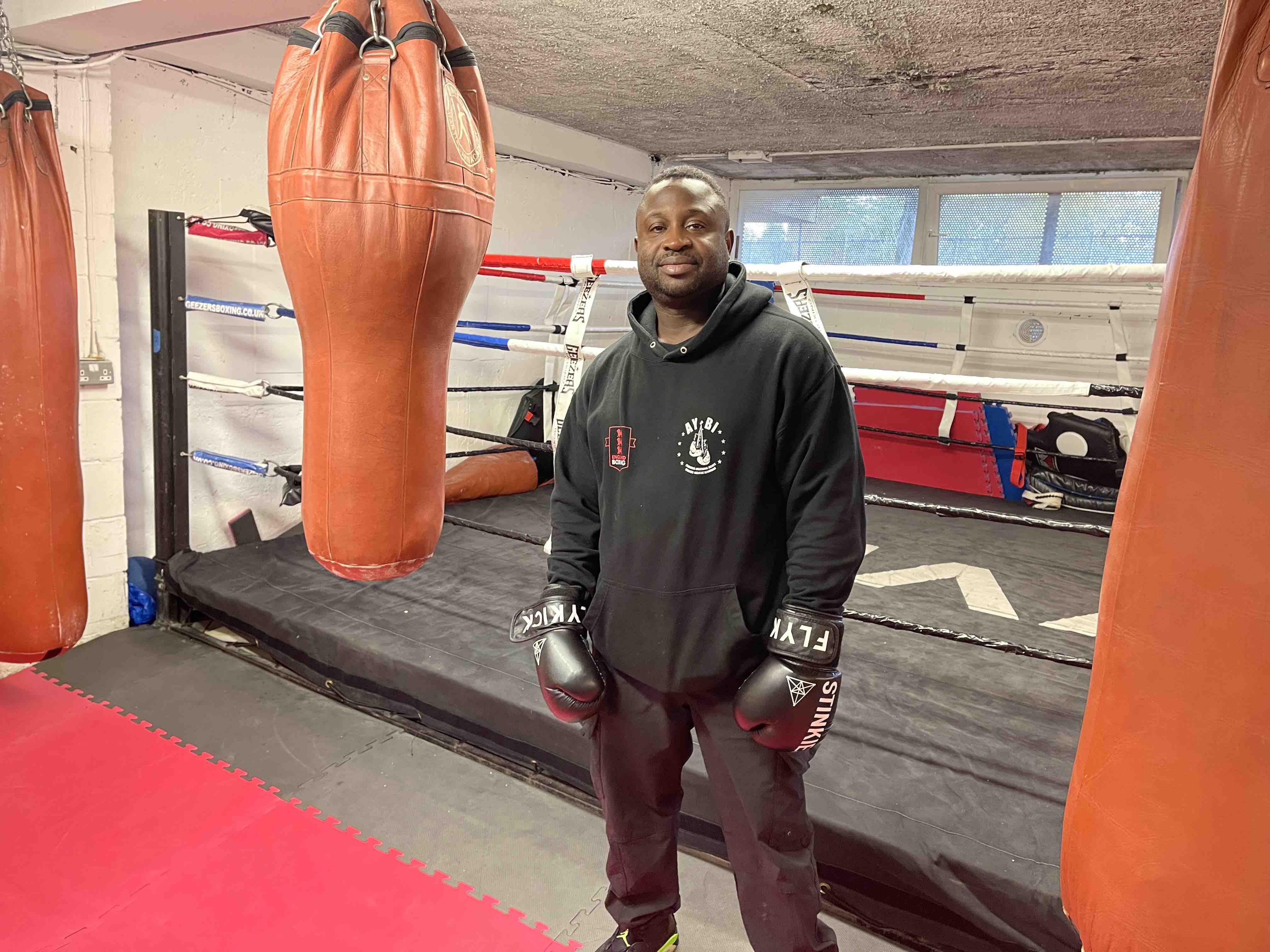Boxing hub aims to help young people at risk
'When I’m engaging with young people I also speak their language'
Thursday, 26th October 2023 — By Frankie Lister-Fell

Albert McEyeson in his new gym: ‘We see a lot of people getting sectioned’
A BOXING programme for deprived young people has finally found a home after seven years.
A few weeks ago, Action Youth Boxing Intervention (AYBI) officially opened its new home in the London School of Mosaic community hub in Gospel Oak after years of using temporary venues and school halls.
The organisation offers free non-contact boxing sessions alongside counselling and training opportunities.
Founder Albert McEyeson said: “The main objective for this hub is to really harness the young people that have fallen through the cracks.
“Those who have just finished alternative provision schools that are between the age of 16 and 25 with no qualifications, who have had adverse childhood experiences, before it goes to that extreme where they are either in prison or hospitalised. We see a lot of people getting sectioned.”
Mr McEyeson has used his experience of being expelled from school when he was 13 and put in a pupil referral unit to relate to the people he mentors. He went to prison twice for drug offences, and is now a qualified counsellor and helping teenagers avoid the same fate.
“I’ve had an upbringing where I’ve experienced a lot of negative experiences and expectations of me,” he said.
“I feel that’s really given me empathy to help other younger people instead of making me feel bitter, which I was when I was younger. When I’m engaging with young people I also speak their language. I think that’s very important. They’ve got a different vocabulary, that roadman slang. That gives you that advantage to make that initial engagement with young people.”
While non-contact boxing on its own “releases frustration and teaches discipline”, Mr McEyeson said their one-to-one mentoring and counselling helps people learn how to process emotions so they can respond to difficult situations calmly.
A lot of their work is intervention in people entrenched in gangs, but AYBI has also designed a prevention programme in schools which combines cognitive behavioural therapy and boxing training to stop vulnerable people from being swept up in gangs.
One of the people who trained at AYBI went from being involved in county lines drug dealing to paying for his own plumbing course and becoming a gas engineer.
“A lot of people are in prison today because of their emotions,” Mr McEyeson said. “‘You disrespected me, you disrespected my ends’ and then they’re in prison because ‘you called me a name on Instagram so I’m going to kill you’. It’s that irrational thinking that needs to be addressed.”
In the past fortnight, two young men were stabbed in separate incidents in Gospel Oak.
Speaking generally about how people join gangs, Mr McEyeson said drill music and violence on social media plays a part, and said children are now going out with big Rambo swords, rather than flip knives.
He said: “When you come from single-parent backgrounds, broken homes or you’ve got little education, that really plays into a young person’s self- worth. It’s evident there’s a lot of young people suffering within the community.
“Drill music doesn’t help. People should have freedom to express themselves. But if you’re rapping about stabbing someone repeatedly, inciting your community to violence, kids believe that’s what you’ve got to do.”
He said that a few people who have come from neglectful families where violence is all they’ve ever known lead gangs. Then there are “imitators” who come from stable homes but still choose that lifestyle as it seems “cool” to them and who are more likely to act when they get scared.
“Violence between rival gangs could have started over something so petty. Someone borrowed a watch which hasn’t been returned, then a few months later someone gets stabbed,” he said.
After that, gangs seek revenge on past attacks. In the past two weeks that AYBI has been open, five young people have self-referred to their programme.
